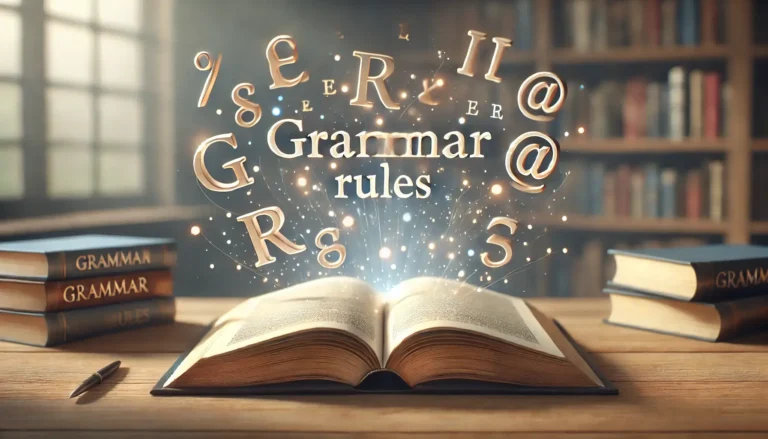Linking words are important in writing because they connect ideas and make your sentences flow better.
They help you show how your ideas relate to each other and guide your readers through your thoughts.
In this guide, you’ll learn about linking words and how to use them to make your writing clearer and more organized. Let’s break it down into easy steps!
Shop laptop and school bags
1. Sequence
Sequence linking words show the order of events or ideas. They help you organize your points in a clear way, so the reader can follow your thinking step by step.
First, Firstly, Second, Third, Thirdly:
These are used to list ideas or steps. They are especially useful when you need to explain something in order or present different points.
- First, turn on the computer.
- Secondly, open the document you want to work on.
- Thirdly, start typing your report.
- Lastly, make sure to save your work!
Next, Last, Finally:
These are great for moving from one idea to the next or when you are finishing your list.
- Next, check if there are any spelling mistakes.
- Finally, print your document.
In addition, Moreover, Furthermore, Also:
These words add extra information or details to your points. They help you build stronger arguments by giving more reasons or facts.
- Moreover, using linking words will make your essay easier to understand.
- In addition, they make your writing look professional.
In conclusion, To summarise:
These words are used when you’re finishing your explanation or argument. They tell the reader that you’re wrapping things up.
- To summarise, linking words are important for good writing.
- In conclusion, using them will improve your writing skills.
The first…, The/a second…, One…, Another…, An additional…:
These phrases are useful for starting new points or arguments.
- One reason to use linking words is that they improve your essay’s structure.
- Another reason is that they make your points clearer.
2. Addition
Shop laptop and school bags
Addition linking words help you add more information to support your ideas. They’re like building blocks that connect extra details or arguments to what you’ve already said.
In addition, Furthermore, Also, And, As well as:
These words help you show that the next point adds to what you’ve just mentioned.
- In addition to writing clearly, you should focus on structure.
- Linking words are important, and they make your writing better.
- You need linking words as well as good grammar to write well.
3. Cause
Cause linking words explain why something happens. They show the reason behind an action or event.
For, Because, Since, As:
These words introduce the reason for something happening.
- Because the weather was bad, the match was canceled.
- Since she studied hard, she passed the exam.
Because of, To cause:
These phrases show that something happened due to a specific reason.
- Because of the heavy rain, the event was delayed.
- The new rules caused some confusion among students.
4. Effect
Effect linking words show what happened as a result of something else. They help explain the outcome of an action or event.
So, As a result, Therefore, Thus, Consequently:
These words show the effect or result of something.
- It rained all day, so the game was canceled.
- She didn’t study, as a result, she failed the test.
To result from, Due To
These phrases link causes to their effects in a more detailed way.
- The delay resulted from poor planning.
- The changes in the schedule were due to the teacher’s absence.
5. Emphasis
Shop laptop and school bags
Emphasis linking words highlight important points. They tell the reader to pay special attention to certain details.
Undoubtedly, Indeed, Obviously:
These words stress that something is very clear or important.
- Undoubtedly, linking words improve your writing.
- Indeed, many students find them useful.
Particularly, Especially:
These words focus on specific details.
- Linking words are particularly helpful in essays.
- Especially in exams, using them can make a difference.
6. Comparison
Comparison linking words show similarities between two or more ideas. They help explain how things are alike.
Similarly, Likewise, Also:
These words show that two things are similar or connected.
- Similarly, the second paragraph supports the main idea.
- She likes reading and writing, just as her brother does.
Like, Just like, Similar to:
These phrases directly compare things.
- Her style of writing is similar to mine.
- His work is just like his father’s.
Not only…but also:
This structure adds emphasis to both parts of the sentence.
He is not only a good student but also a talented musician.
7. Contrast
Contrast linking words show differences between ideas. They help explain opposing points or show how two things are not the same.
However, Nevertheless, Nonetheless, Still:
These words introduce a contrast to the previous point.
- The weather was terrible; however, they still went on the trip.
- She studied hard; nevertheless, the exam was difficult.
Although, Even though, Though, But, Yet:
These are used to show a contrast in one sentence.
- Although it was raining, we went outside.
- He wanted to go out, but he stayed home.
Despite, In spite of, On the other hand, In contrast:
These phrases introduce opposing ideas or show how things are different.
- In contrast to last year, this year’s performance was better.
- He is hardworking; on the other hand, his brother is very lazy.
8. Example
Shop laptop and school bags
Example linking words help you explain your ideas by giving specific examples or illustrations.
For example, For instance:
These words introduce examples that make your point clearer.
- For example, many students use linking words in their essays.
- For instance, you can use “because” to explain why something happened.
Such as, Including, Namely:
These words provide specific examples within a broader statement.
- The project focuses on subjects such as science and math.
- She enjoys outdoor activities, namely hiking and biking.
Conclusion
Linking words are an important part of writing because they connect ideas and make your sentences flow.
They help the reader understand how your points relate to each other and guide them through your writing.
Whether you’re showing the order of events, adding more information, explaining a cause, or highlighting a contrast, linking words make your writing clearer and more organized.
By practicing how to use these linking words, you’ll improve your writing skills and make your essays stand out.







